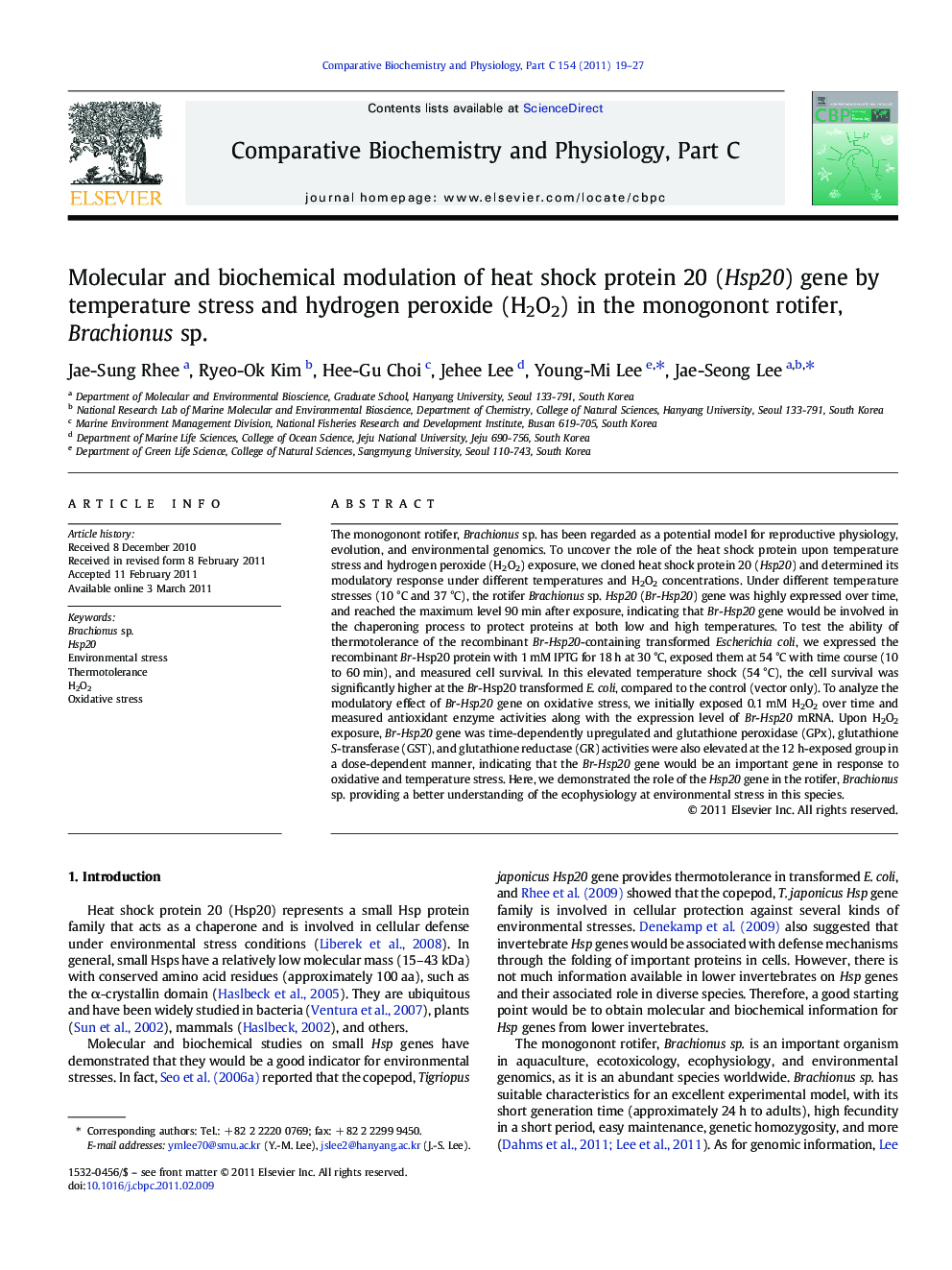| Article ID | Journal | Published Year | Pages | File Type |
|---|---|---|---|---|
| 1977461 | Comparative Biochemistry and Physiology Part C: Toxicology & Pharmacology | 2011 | 9 Pages |
The monogonont rotifer, Brachionus sp. has been regarded as a potential model for reproductive physiology, evolution, and environmental genomics. To uncover the role of the heat shock protein upon temperature stress and hydrogen peroxide (H2O2) exposure, we cloned heat shock protein 20 (Hsp20) and determined its modulatory response under different temperatures and H2O2 concentrations. Under different temperature stresses (10 °C and 37 °C), the rotifer Brachionus sp. Hsp20 (Br-Hsp20) gene was highly expressed over time, and reached the maximum level 90 min after exposure, indicating that Br-Hsp20 gene would be involved in the chaperoning process to protect proteins at both low and high temperatures. To test the ability of thermotolerance of the recombinant Br-Hsp20-containing transformed Escherichia coli, we expressed the recombinant Br-Hsp20 protein with 1 mM IPTG for 18 h at 30 °C, exposed them at 54 °C with time course (10 to 60 min), and measured cell survival. In this elevated temperature shock (54 °C), the cell survival was significantly higher at the Br-Hsp20 transformed E. coli, compared to the control (vector only). To analyze the modulatory effect of Br-Hsp20 gene on oxidative stress, we initially exposed 0.1 mM H2O2 over time and measured antioxidant enzyme activities along with the expression level of Br-Hsp20 mRNA. Upon H2O2 exposure, Br-Hsp20 gene was time-dependently upregulated and glutathione peroxidase (GPx), glutathione S-transferase (GST), and glutathione reductase (GR) activities were also elevated at the 12 h-exposed group in a dose-dependent manner, indicating that the Br-Hsp20 gene would be an important gene in response to oxidative and temperature stress. Here, we demonstrated the role of the Hsp20 gene in the rotifer, Brachionus sp. providing a better understanding of the ecophysiology at environmental stress in this species.
